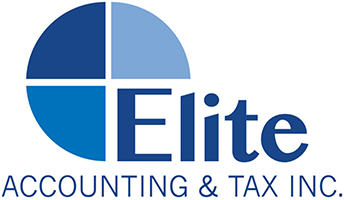Taxes must be paid by everybody who resides or works in the United States. For many people, taxes can be a significant cause of worry, but this doesn’t have to be the case. You might be able to lessen your tax liability or receive a bigger return at the end of the year with careful tax planning. Unfortunately, many taxpayers miss out on potential tax breaks and overpay as a result of inadequate knowledge.
Taxes should be considered as you develop your financial strategy. Planning your taxes carefully is essential for any wealth-management plan. Other benefits include growing your small business, maximizing your income, protecting you from fines, and saving for your child’s education or a retirement fund. Continue reading to discover what tax planning is all about, what are its potential advantages, and how to start planning your taxes.
What is Tax Planning?
Tax planning can be defined simply. In order to reduce your tax bill, it includes examining your financial condition. It enables you to pay back more while owing less. Depending on your circumstances, it may put hundreds or thousands of dollars in your pocket at the conclusion of tax season.
Any financial plan for individuals or businesses must include tax planning. With careful planning, you can identify the tax benefits for which you are eligible. You might be able to benefit from:
1. Deductions
You can lower your taxable income by taking tax deductions. They often take the form of annual expenses that you can deduct from your gross income. A charitable donation might be deducted.
2. Concessions
A tax concession is when the government lowers the amount that a particular group of people must pay. They are typically employed to encourage particular behavior.
3. Rebates
Refunds in the form of rebates take place after a retroactive tax cut. During financial recessions, Congress occasionally grants rebates to assist in boosting the economy. Additionally, they are employed as incentives for eco-friendly practices.
4. Exemptions
Exemptions can reduce or help you do away with tax payments. You can lower your taxes by a specific amount for each child or other relative under your care, thanks to dependent-related exemptions.
What is Tax Planning for Small Businesses?
Small businesses and independent contractors have particular tax obligations. Making the appropriate deductions is essential. For instance, you might be qualified for a deduction if you work from home. The cost of automobiles, office supplies, travel, and other work-related expenses may also be written off. Utilizing any tax reduction is especially beneficial if you’re beginning a new firm.
How Does Tax Planning Help?
Both immediate and long-term advantages come from tax preparation. Having extra funds after tax season is the biggest short-term gain. Depending on your situation, any of the following could provide long-term benefits:
- Solve tax problems. Planning can assist you in addressing these difficulties and identifying a solution if you have unpaid taxes or other tax-related problems.
- Support your business. Tax obligations should not be one of the challenges that come with starting or maintaining a business. Small business tax preparation can help you build your company and amass more resources for expansion.
- Maximize your estate. If you have an estate that is big enough to be subject to state or federal estate taxes, careful preparation can significantly improve your family’s financial situation while lowering your responsibility.
- Save for retirement. In time, your retirement contributions may increase tax-free, building a sizeable pension pot. Even though retirement may seem far off, early preparation is essential for a successful post-career life.
Let Elite Tax & Accounting Help You Plan Your Taxes
Start saving money with the help of our tax planning and other tax services. Call us at 773-582-2700 today to discuss how we can help you manage your tax obligations and reduce your tax burden, or request a free consultation and we’ll contact you right away.


